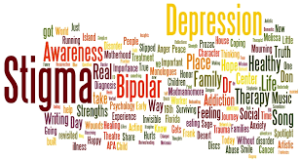Unexpected Happiness
 Most people assume happiness comes from material things, especially in our consumer culture. Not so, folks. Happiness comes not from craving but from compassion and loving kindness. I am an expert on craving. Currently, my main craving is for ice cream. I think about ice cream, I long for it. I score! I eat ice cream and have a fleeting feel good. Then it starts all over. I am suffering desiring the temporary fix that creamy, sweet, fatty stuff provides.
Most people assume happiness comes from material things, especially in our consumer culture. Not so, folks. Happiness comes not from craving but from compassion and loving kindness. I am an expert on craving. Currently, my main craving is for ice cream. I think about ice cream, I long for it. I score! I eat ice cream and have a fleeting feel good. Then it starts all over. I am suffering desiring the temporary fix that creamy, sweet, fatty stuff provides.
There are two main results. I feel that discontent of no ice cream, eat ice cream, feel contented for an hour or so, than resume craving. I am also getting fat.
There is another way. Do good and feel good. The good feeling doesn’t go away. We are wired to help one another. It comes from feeling compassion for someone who is suffering. We then act out of loving kindness. The person suffering feels better and so do we. They are feelings that don’t go away.
 Many philosophers and economists say we operate on the pleasure principle. Most of them assume pleasure results from satisfying craving. The marketers exploit the craving and tell us happiness comes from the right beer, or car, or toothpaste. In fact, they are exploiting suffering.
Many philosophers and economists say we operate on the pleasure principle. Most of them assume pleasure results from satisfying craving. The marketers exploit the craving and tell us happiness comes from the right beer, or car, or toothpaste. In fact, they are exploiting suffering.
For the first part of my life I operated on that false pleasure principle. I wanted stuff, temporary sensual gratification, alcohol, and ice cream. I was something of a melancholy, trying to fill a void in my soul. I then met the love of my life. I was happy with her and looked forward to sharing satisfying cravings with her. Food, stuff (lots of stuff), the mountains, the desert, canoeing, road trips, all those fleeting pleasures.
It turned out the love of my life is sick. She has lupus, and can’t do many of the things I thought were the main goals of my life. We can’t do road trips, she can’t be in the sun very long, she doesn’t have much energy, and she hurts. All those fantasies exploded.
One of the benefits for me in meeting the love of my life is my commitment to her. For better or for worse. I cook. I clean. I do the heavy work of gardening, including maintaining that blasted sprinkling system. I do Jin Shin Jyutsu(Japanese acupressure) three times a week I do shopping. I lift, carry, move, assemble, and help in any way I can. I scratch her back, we snuggle, we talk, laugh, and get cranky with one another.
Her family members have more trouble than they deserve. I drove to Minneapolis to help her brother when his leg was broken by an errant automobile. He has no support system there, so I went and helped out. Her parents got old and infirm. We visited Florida and North Carolina to help out. We had lots of trips to Florida. Her dad moved here when he could no longer handle the tasks of daily living. Her mother moved to Boise to be with Carol’s sister and we visited there. I also act as support for Carol’s two children, especially her son.
All that seems like drudgery, inconvenience, and suffering. Not so. It is fulfilling. I like to help, even if it means hundreds of miles of corn and soybeans on the way to Minneapolis. Have you ever seen the blue earth clay west of Mankato (means blue earth) or the Nebraska sand hills? Have you gotten lost on foot in downtown Minneapolis? If not, you have really missed out. The whole thing feels good. Well, there is some inconvenience as well, but it is mostly happiness. May you find happiness in helping others.

